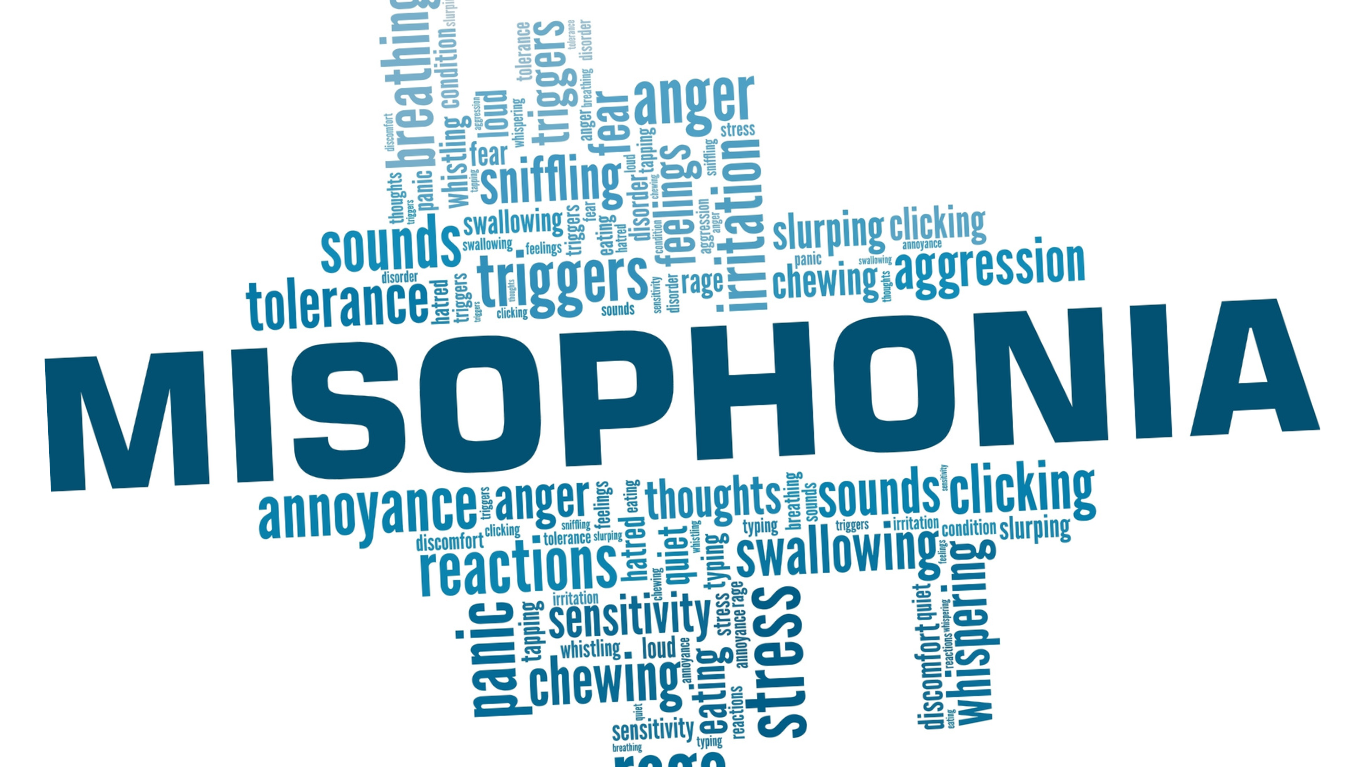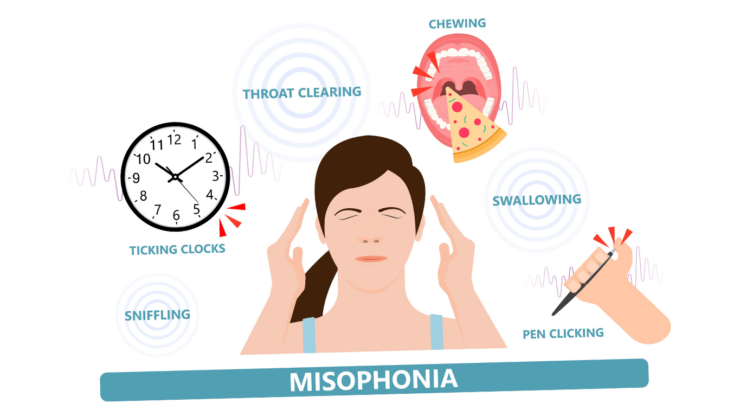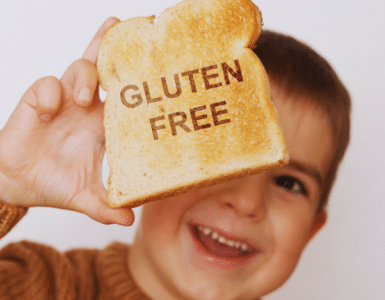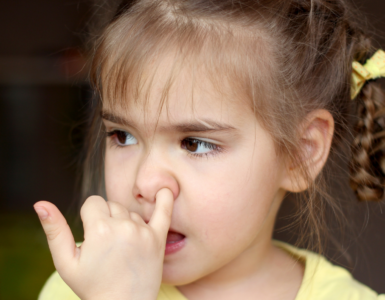Being a parent is a tough job, especially when your child’s noises drive you up the wall.
You might find yourself getting angry when your child chews their food loudly or yawns repeatedly. You might avoid taking them to restaurants because you can’t stand the sound of their slurping or tapping.
“Yesterday everything was cool, I was fine, and now today I feel like you’re poking me with sharp knives, and I don’t understand why,” says Dr. Marsha Johnson, an experienced audiologist who has dedicated over 25 years to studying Misophonia.
Parentology interviewed Dr. Johnson about this rare, fascinating condition, its characteristics, the impact on individuals and families, and coping strategies.
What is Misophonia?
Misophonia is an extraordinary condition where common sounds, usually made by others, become triggers for intense emotional and physiological reactions, including anger, anxiety, and a desire to escape. The sensation can be overwhelming, difficult to manage, and downright excruciating. However, understanding misophonia and seeking help and support can make a significant difference.
Derived from the Greek words “miso” (hatred) and “phonia” (sound), misophonia is a rare condition characterized by an overwhelming aversion and intense emotional response to specific sounds.
Dr. Johnson initially referred to the condition as Selective Sound Sensitivity syndrome when she began working with younger teenagers who exhibited strong reactions to sounds that most people barely notice. “The most common triggers are sounds generated with your face, like eating, breathing, swallowing, or the things that we do with our lips and mouth and noses and throats,” she explains.

What sets misophonia apart is the sudden onset of these reactions, often likened to a switch being flipped. The affected individuals experience immediate emotional and physiological reactions that bypass conscious thought. “Misophonia has an immediate emotional and physiological response that doesn’t really go through your thinking brain,” says Dr. Johnson. This means that the initial response doesn’t pass through the analytical part of the brain that questions the cause of the sound, resulting in a heightened and uncontrollable reaction.
Parents may witness their previously calm child suddenly becoming upset and unable to tolerate simple activities like sitting at the dinner table.
Recognizing Misophonia
The intelligent and articulate nature of young misophonia sufferers enables them to express their experiences and triggers clearly. By actively listening and gathering data, Dr. Johnson discovered that misophonia often emerges in late childhood or early adolescence, rather than suddenly appearing in the teenage years.
Dr. Johnson found that around 75% of individuals with misophonia were female. This discrepancy might be related to the hormonal changes that occur during puberty, as misophonia often emerges around the ages of 8 to 11.
During this time, the body undergoes significant hormonal shifts, and the flood of female hormones in young girls may play a role in the development of misophonia. However, further research is needed to establish a clear connection between hormonal changes and the condition.
Differentiating misophonia from normal emotional behavior can be challenging, especially during adolescence when heightened emotions are common. However, Dr. Johnson emphasizes the significance of early recognition and understanding.
Exploring Correlations
While misophonia is often associated with other conditions such as obsessive-compulsive disorder (OCD) or anxiety, Dr. Johnson’s research indicates that there is no higher incidence of these comorbidities among individuals with misophonia compared to the general population. “Misophonia is not a sensory processing disorder,” she says. “The remarkable thing about this patient group is their development is otherwise perfectly normal.”
However, misophonia can be misdiagnosed as anxiety or OCD due to similarities in symptoms. Dr. Johnson emphasizes the need for accurate diagnosis to ensure proper understanding and management of misophonia.
Impact on Individuals and Families
Misophonia can have a profound impact on the lives of those affected and their families. The condition can manifest as a cruel disorder, targeting the individuals’ closest relationships.
Dr. Johnson recounts heart-wrenching stories of young children who struggle with misophonia. “It’s like a yellow jacket stinging you. And it can manifest as a cruel disorder, robbing people of the right to comfort their child or sit next to their child due to triggers associated with them.” The shame and isolation experienced by individuals with misophonia can lead to emotional distress, strained family dynamics, and feelings of otherness.
Managing Misophonia
For parents of children with misophonia, the journey can be challenging and emotionally taxing. Dr. Johnson emphasizes the importance of education and gathering information from reliable sources. By staying informed about the latest research and connecting with medical professionals and support groups, parents can better understand and address the needs of their children.
Parents should act as a stable anchor for their child, providing clear boundaries and guidelines for behavior while acknowledging and validating their struggles. “You have to have a support system in place, because you’re going to have your feelings hurt,” says Dr. Johnson. “Afflicted children are going to make you feel guilty and upset, and this is something you can’t fix. I really recommend family counseling, including siblings, parents, even grandparents. You’ve got to build a team.” Seeking family counseling can help family members cope with the emotional impact of misophonia and develop effective communication strategies.
Parents must also be mindful of their own self-care and seek support for themselves. Parenting a child with misophonia can be emotionally challenging, and having a support system in place is crucial. Online communities, such as Facebook groups for parents of children with misophonia, can offer valuable support and advice from others who have experienced similar situations.
When a Parent Has Misophonia
Conversely, when misophonia affects the parent themself, it can be an added layer of complexity. Dr. Johnson explains that when children become triggers for their parents, it can be a difficult situation to navigate. The parent may experience heightened sensitivity to their child’s sounds, creating a challenging dynamic within the family. In such cases, it is essential for parents to implement coping strategies and create a supportive environment for both themselves and their children.
Stress management techniques and relaxation exercises can be beneficial for both children and parents affected by misophonia. These techniques can help individuals regulate their emotional responses and create a sense of calm. However, it is important to remember that misophonia is a complex neurological condition, and relaxation techniques may not completely eliminate the triggers. They can, however, provide some relief and improve overall well-being.
ALSO: Dr. Russell Barkley’s 6 Principles for Raising a Child with ADHD
Dr. Johnson advises parents to remember the importance of self-care. Taking time for oneself, engaging in activities that bring joy and relaxation, and seeking support from friends, family, or therapists are essential components of maintaining emotional well-being. It is crucial for parents to care for themselves so that they can provide the necessary support for their children.
Regarding the use of earplugs and other devices, Dr. Johnson explains that while they can offer some relief, they are not a definitive solution. Earplugs can only block out a limited range of sound, and their effectiveness varies from person to person. They can be used as part of a toolkit of coping mechanisms, but they should not be solely relied upon. Consulting with an audiologist can provide further guidance on potential auditory devices that may help manage misophonia symptoms.
Coping Strategies
Coping with misophonia requires a multifaceted approach. Dr. Johnson recommends stress management techniques and relaxation exercises as valuable tools for individuals and families. While these techniques may not completely eliminate triggers, they can provide some relief and improve overall well-being.
Environmental modifications, such as playing background music or using auditory devices that provide alternative sounds, can also help individuals with misophonia create a more tolerable environment. Dr. Johnson emphasizes the importance of self-care for both individuals and parents, highlighting the need to prioritize rest, engage in activities that bring joy and relaxation, and seek support from friends, family, or therapists. Building a support network, such as joining online communities or support groups, can provide validation and understanding for individuals and their families.
The Journey Towards a More Fulfilling Life
Dr. Johnson emphasizes that while misophonia can present significant challenges, many individuals with the condition go on to lead near-normal lives with appropriate accommodations. The teenage years, which can be particularly challenging, often mark a turning point.
Managing misophonia within the family requires open communication and understanding. Parents can establish practical rules and accommodations to ensure that the child’s triggers are minimized, while still maintaining healthy boundaries and behavior expectations. Seeking therapy, both individually and as a family, can provide valuable tools for managing the emotional and psychological impact
As individuals gain more autonomy and control over their environment, they can make choices that minimize triggers and create spaces conducive to their well-being. Higher education and careers provide opportunities for accommodations, such as private offices or flexible schedules.
Engaging in physical activities, pursuing hobbies, and fostering strong social connections can also contribute to a fulfilling life with misophonia.
Looking Ahead
Research and awareness surrounding misophonia are steadily progressing. Dr. Johnson highlights the recent increase in funding for research grants, indicating a growing recognition of the condition and a commitment to understanding its underlying mechanisms. As the knowledge base expands, healthcare professionals and researchers can better support individuals with misophonia and their families.
ALSO: Dr. Jenny Yip Talks Teen Anxiety and Mental Health
In conclusion, misophonia is a unique condition that affects individuals on both emotional and physiological levels. Its impact on daily life and relationships should not be underestimated. However, with increased awareness, understanding, and support, individuals and families can navigate the challenges associated with misophonia.
Dr. Johnson highlights the resilience and adaptability of individuals with misophonia. While the teenage years may be particularly challenging, she emphasizes that many individuals with misophonia go on to lead near-normal lives with some accommodations.
By implementing coping strategies, seeking professional help, and building a strong support system, individuals with misophonia can lead fulfilling lives and thrive despite their triggers. With ongoing research and continued advocacy, there is hope for improved understanding, diagnosis, and treatment options for those living with misophonia.
If you’d like to learn more, check out the Misophonia Association.








Add comment